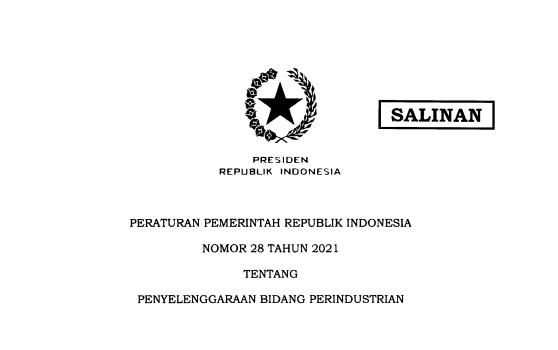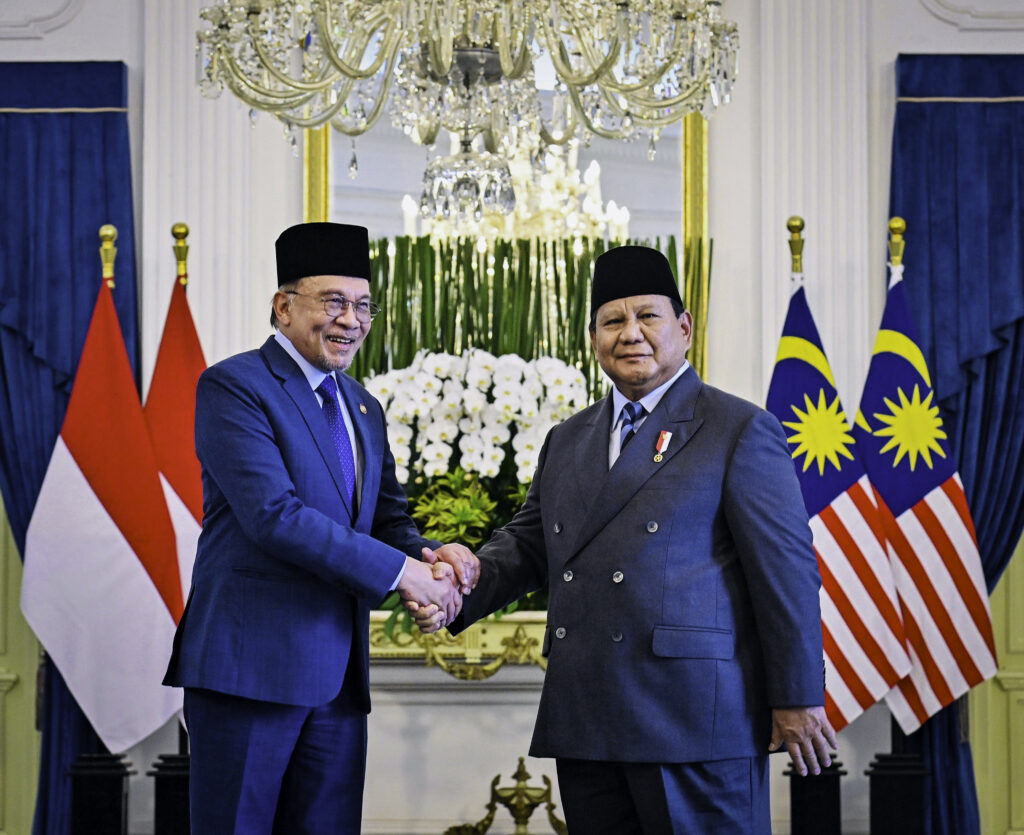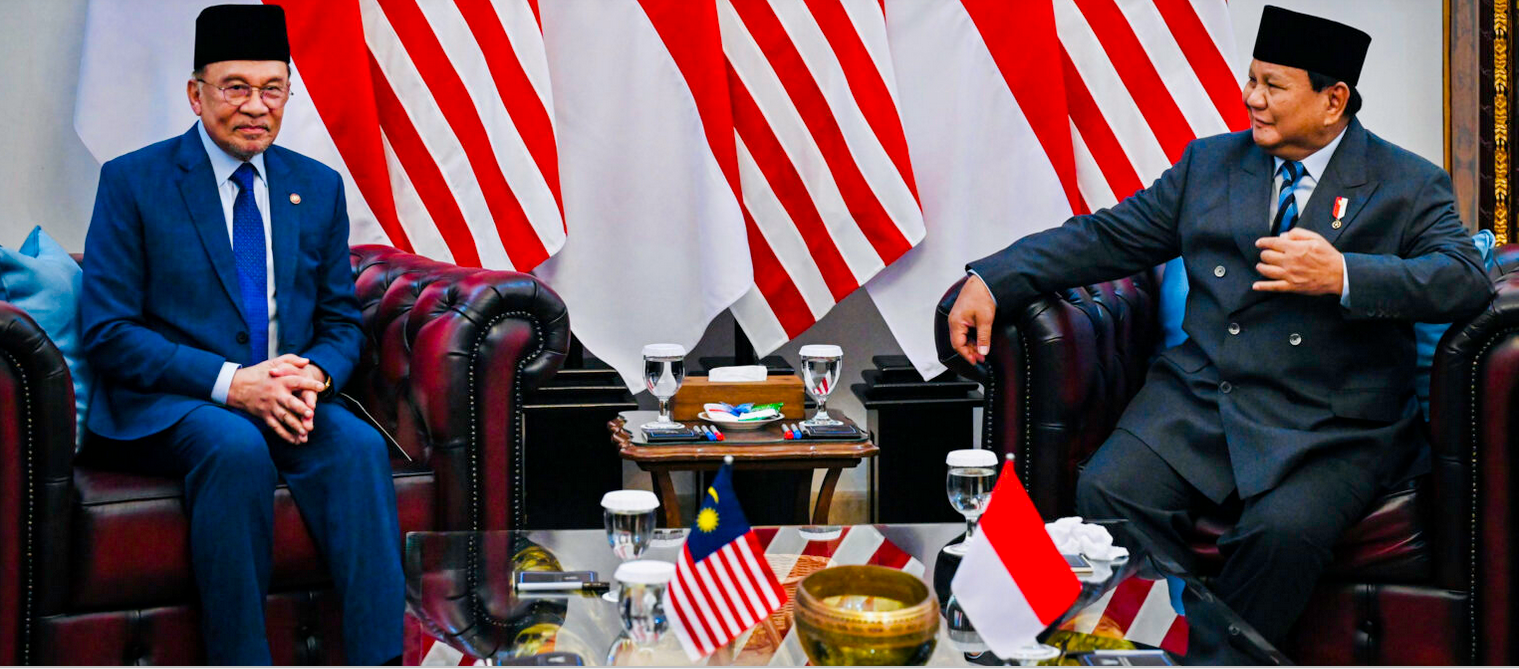Gov’t Committed to Supporting Industrial Sector Through Implementing Regulations for Job Creation Law

The Government renewed its commitment to push for strategic role of the industrial sector in driving the national economy amid the impact of the COVID-19 pandemic.
According to Minister of Industry Agus Gumiwang Kartasasmita, the manufacturing industry has provided a great contribution to the economy, including increasing the added value of domestic raw materials, increasing employment, as well as foreign exchange earnings from exports and taxes.
“The industrial sector will serve as the main driving force for the national economic recovery due to the COVID-19 pandemic. Thus, the Government issues a host of policies to meet these targets,” the Minister said, Jakarta, Monday (22/2/).
The Minister went on to say that the Government has completed 51 implementing regulations for Law Number 11 of 2020 on Job Creation, including Government Regulation Number 28 of 2021 (PP 28/2021) on the Implementation of the Industrial Sector.
“The regulatory scope of the PP 28/2021 includes raw materials and/or supporting materials, guidance and supervision of conformity assessment agencies, strategic industries, community participation in industrial development, as well as procedures for supervising and controlling industrial business activities and industrial estate business activities,” he said.
The Minister also expressed optimism that PP 28/2021 will support the acceleration of the country’s industrial sector growth and boost the development to be competitive in the global arena. Therefore, the regulation will provide convenience and business certainty for industry players in accordance with the aims and objectives of the Job Creation Law.
“Indonesia’s economic growth is projected to rebound in 2021 by 5.3 percent. The growth of the non-oil and gas processing industry is also targeted to grow by 3.95 percent,” he said.
The regulation states that in order to maintain the continuity of the production process and/or industrial development, the Central Government and local governments make it easier for all stakeholders to obtain raw materials and/or supporting materials. In the meantime, industrial companies must use raw materials and/or supporting materials in the production process in an efficient, environmentally friendly, and sustainable manner.
In order to ensure the availability of raw and/or supporting materials, the Central Government will establish a commodity balance which contains complete, detailed, and accurate data regarding the need for raw materials and/or supporting materials for domestic industries.
“Both the central and local governments will also ensure the distribution of raw materials and/or supporting materials in the country,” Agus said, adding that the Central Government will supervise the use of raw materials and/or supporting materials by industrial companies and export raw materials and/or supporting materials.
Regarding the guidance and supervision of conformity assessment agencies, the Central Government is set to plan, guide, develop, and supervise industrial standardization to meet the Indonesian National Standard (SNI), Technical Specifications, and/or Code of Conduct.
According to PP 28/2021, strategic industry means the industry that meets important needs for the welfare of the people or controls the livelihoods of many people, increases or produces added value to strategic natural resources, and/or has a connection with interests of national defense and security.
The strategic industrial ownership arrangements include total equity participation by the Central Government, the formation of joint ventures between the Central Government and the private sector, or restrictions on ownership by foreign investors in accordance with the provisions of laws and regulations.
PP 28/2021 also states the roles the communities in industrial development play, including in planning, implementing, and supervising industrial development. The community covers individuals, and/or groups of people with legal status insofar as they have an interest in the progress of national industrial development. In addition, they must meet the following criteria, such as Indonesian citizens, have a scientific background in the industrial sector, and have expertise in the industrial sector.
The regulation explains the procedures for supervision and control of industrial business activities and industrial estate business activities. For instance, the Central Government supervises and controls industrial business activities and industrial estate business activities.
The supervision and control are carried out to determine the fulfillment and compliance with industrial regulations implemented by industrial companies and industrial estate companies. For instance, industrial estate companies are required to meet industrial estate standards, which include infrastructure, environmental management, and industrial estate management and services.
Previously, the Government has passed Presidential Regulation Number 107 of 2020 (PP 107/2020) on Ministry of Industry. According to the regulation, the organizational structure and work procedures of Ministry of Industry are consistent with the needs of Job Creation Law related to the implementation of the industrial sector. (Ministry of Industry/UN) (RIF/MUR)
Visit Ministry of Industry’s official website here.








